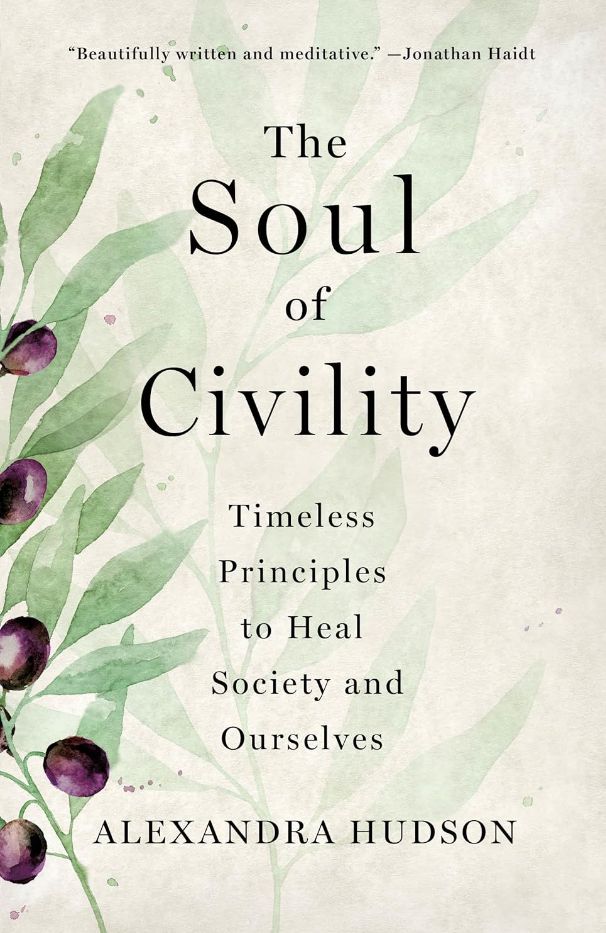I just read a brand new book on civility that’s gotten me thinking about something that’s key to our work and has mattered a lot in my life — the difference between “civility” and “politeness.”
“I always perceived ‘civility’ as the rules that rich people used to denigrate and patronize me.”
I grew up poor. My dad was one of seven kids paying his own way through college. My mom grew up wealthy but on an enormous farm in an extremely rural community. We lived in a community that acted with civic virtue, but we never thought of ourselves as acting with “civility”; I always perceived “civility” as the rules that rich people used to denigrate and patronize me.
As I became an adult working in politics, I resented what people called “civility.” That resentment made me better at my job because I empathized with the barriers perceived by many fellow Reds and working-class Blues. But I still find myself chafing sometimes at that word, “civility.”
No more. The new book The Soul of Civility, by Alexandra Hudson, restored warmth in my heart for the word and helped me reframe my previous frustration with it as being with the practice of politeness instead. “Politeness,” Alexandra writes, “can be and has been weaponized to penalize difference, oppress vulnerable populations and voices, and silence dissent.” It felt like she was speaking specifically to my experience. Conversely, practicing civility leads to “multidimensional human flourishing.” Civility, she argues, requires us to “combat our innate self-love, care for those in need, and show humanity to our friends and enemies alike.”
This book inspired me to think of civility not as a tool or means to an end but as a virtue and constant life practice for human flourishing.
Writing from the perspective of her Christian faith, Alexandra convincingly argues for a society governed by “norms that subvert the ego” as Jesus did — valuing “compassion and love for others” more highly than “complying with the rules of right conduct.” Or in other words, “maintaining the spirit of the law over the letter of the law.”
But subverting the ego and keeping our self-love at a level that helps us maintain community with people across differences is, of course, not just a practice for Christians. It’s a timeless practice for community health, institutional stability, and relational warmth. Braver Angels’ ground rules (for example, “We’re going to describe our own views and avoid characterizing the views of the other person in terms they don’t use themselves”) thrive under this idea. The point of our rules is not militant enforcement, each participant listening for someone to say something they think is polarizing or stereotyping. The goal is not perfect “politeness.” Instead, the goal is to understand the “substance and motivation” behind a person’s words and actions, while avoiding hypocrisy toward our own.
These ideas should be a clarion call for Braver Angels. In my time promoting civic renewal, I’ve often run across organizations who believe they’re celebrating civility but instead feel oppressively polite. But as Alexandra concludes in The Soul of Civility, “…peaceful coexistence is challenging and fragile. It requires vigilant nurturing.”
Without purposeful effort, we’re prone to replace civility with politeness even in our own lives. “Running from disagreement, or pretending differences don’t exist, is not an option,” Alexandra writes. “Being overcome by the battles and chaos of the world is a recipe for despondency. Building habits of personal renewal involves recovering pursuits that nourish our souls.”
Building strong community across difference is a pursuit that nourishes my soul. And I hope, as Braver Angels, that the personal “transforming of our hearts” is something that nourishes yours, too.




